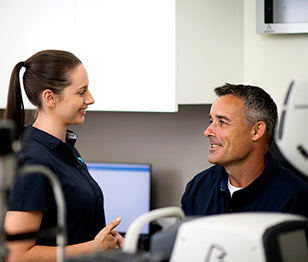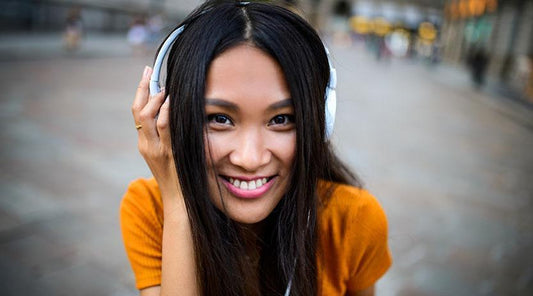Know what to do with dry eyes

Dry eye is a common, chronic condition that occurs when your eyes don’t produce enough tears, or the efficacy of the tears is not sufficient, to lubricate the surface of the eye. While it’s usually not a serious condition it can be uncomfortable and annoying – and in more serious cases can damage the surface of the eye and lead to permanent scarring.
What are the symptoms?
- Your eyes might feel irritated, scratchy, itchy, watery or as if they’re burning
- The feeling of having something in your eye
- Blurred or fluctuating vision
What are the causes?
- Age – we’re more likely to have dry eyes as we get older
- Gender – it’s more common in women than men
- Some medications, like antihistamines
- Medical conditions, like rheumatoid arthritis
- Your environment – including if it’s windy or you’re using air conditioning
- Too much time in front of a computer and using other screens
- Other factors like contact lens wear, ocular surgery and wearing a face mask.
What does vision with dry eyes look like?
Click and drag the image below to see how dry eyes can affect your vision.
Healthy vision
How can a face mask cause dry eye?
Wearing a face mask is an important factor in helping reduce the spread of COVID-19, however you may experience a few side effects like foggy glasses and dry eyes caused by air travelling out the top of the mask and over the surface of the eyes.
Is dry eye curable?
Unfortunately not – but there are treatments to help with symptoms. Even changes like turning down the air conditioner, making more of an effort to blink regularly, ensuring your face mask sits well and is sealed over the bridge of your nose, or turning off your devices for a while can help.
Your optometrist will also suggest the best treatment options if you’re diagnosed with dry eye. Sometimes over-the-counter eye drops, ointments and sprays are the best way forward. Other treatments – like heat and steam goggles, lid wipes or prescription eyedrops might be advised.
When should I see an optometrist?
If you’re experiencing any symptoms. The sooner you start treating dry eyes, the better you’ll feel!

We're here to help
Ask your optometrist if you have any questions about dry eyes or book an appointment today.
You might also like
View all-
Understanding astigmatism
There’s a good chance you’ve heard of astigmatism before. It’s a common eye condition that causes blurred vision, discomfort in your eyes and headaches.
Eye conditionsUnderstanding astigmatism
There’s a good chance you’ve heard of astigmatism before. It’s a common eye condition that causes blurred vision, discomfort in your eyes and headaches.
Read more -
Learning more about cataracts
You’ve probably heard of cataracts – when the normally clear lens of the eye becomes cloudy. It happens because the lens becomes hardened, and it means a gradual decrease in...
Eye conditionsLearning more about cataracts
You’ve probably heard of cataracts – when the normally clear lens of the eye becomes cloudy. It happens because the lens becomes hardened, and it means a gradual decrease in...
Read more -
The ins and outs of colour deficiency
You might know colour deficiency by its other name – colour blindness. This name isn’t technically correct, as most people living with colour deficiency can actually still see colours.
Eye conditionsThe ins and outs of colour deficiency
You might know colour deficiency by its other name – colour blindness. This name isn’t technically correct, as most people living with colour deficiency can actually still see colours.
Read more






